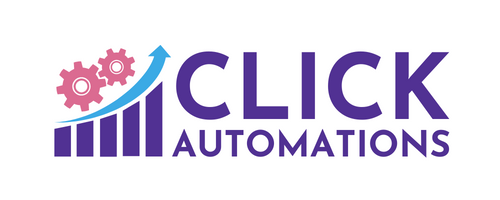BLOG
Where we share modern strategies to attract and retain your ideal clients.

Simple SEO Tips to Rank Higher in Search Results
Ranking higher in search results is essential for expert advisors who want to attract more clients and grow their businesses. Higher rankings mean more visibility, increasing website traffic, and more opportunities to showcase expertise. You need to implement effective Search Engine Optimization (SEO) strategies to achieve this.
Through this article, you’ll learn simple yet powerful SEO tips that can help you rank higher in search results. These actionable insights will empower you to enhance your online presence and reach your target audience more effectively. Let's dive into these essential SEO techniques that can transform your digital marketing efforts.
On-Page SEO Techniques to Implement Today
On-page SEO is crucial for improving your website’s search engine rankings. It involves optimizing individual pages to make them more search engine-friendly. You can enhance your website's relevance and visibility by implementing on-page SEO techniques.
1. Optimize Title Tags and Meta Descriptions: Ensure each page has a unique and relevant title tag. The title should accurately reflect the content and include your target keyword. The meta description should be compelling and informative and include keywords. These elements help search engines understand your content and improve click-through rates.
2. Use Header Tags Correctly: Header tags (H1, H2, H3, etc.) structure your content and make it easier to read. Use one H1 tag for the main title and H2 or H3 for subheadings. Include keywords in these headers to enhance SEO. This practice helps search engines understand the layout and importance of your content.
3. Optimize Images: Use descriptive filenames and alt text for all images on your website. The alt text should describe the image and include relevant keywords. This improves your chances of appearing in image searches and makes your site more accessible.
4. Enhance Page Load Speed: A slow website can hurt rankings. Use tools to test your page speed and make necessary improvements. Compress images, reduce redirects, and leverage browser caching to speed up your site. Fast-loading pages provide a better user experience and rank higher in search results.
Creating High-Quality, Engaging Content That Ranks
Producing high-quality, engaging content is one of the most important aspects of SEO. Content that provides value to your audience is more likely to rank higher in search results.
1. Conduct Keyword Research: Identify the keywords that your target audience is searching for. Use these keywords in your content, including titles, headers, and body text. Keyword research helps you understand what your audience is interested in and tailors your content to meet those needs.
2. Create Informative and Original Content: Write content that answers questions, solves problems, or provides valuable information. Original content is more likely to be shared and linked to by other websites. Avoid duplicate content, as it can hurt your rankings. Focus on creating content that is unique and valuable to your readers.
3. Use a Clear and Engaging Writing Style: Write in a way that is easy to read and understand. Short sentences, paragraphs, bullet points, and subheadings summarize the text. An engaging writing style keeps readers on your page longer, reducing bounce rates and improving your SEO.
4. Include Multimedia Elements: Add images, videos, infographics, and other multimedia to your content. These elements make your content more engaging and visually appealing. They also provide additional opportunities to include keywords and improve your SEO.
Building and Managing Effective Backlinks
Backlinks are links from other websites that lead to your site. They are a crucial part of SEO, as search engines view them as votes of confidence. The more high-quality backlinks you have, the better your website will likely rank in search results.
1. Create Shareable Content: Produce content people find valuable and want to share. This could be informative articles, how-to guides, or original research. Shareable content naturally attracts backlinks, as other websites link to it as a valuable resource.
2. Guest Blogging: Write articles for reputable websites in your industry. Include a link to your website in the author bio or within the content. Guest blogging helps you reach new audiences and builds your backlink profile.
3. Build Relationships with Influencers: Connect with industry influencers and bloggers. Share their content and engage with them on social media. Building relationships can lead to opportunities for them to link to your website in their content.
4. Use Online Directories and Listings: Submit your website to relevant online directories and local listings. These platforms provide backlinks and can also increase your online visibility. Make sure to choose reputable directories to avoid low-quality links.
Monitoring and Analyzing Your SEO Performance
To ensure the success of your SEO strategies, it's essential to monitor and analyze your performance regularly. This will help you understand what's working and identify areas for improvement.
1. Use SEO Tools: Leverage tools like Google Analytics and Google Search Console to track your website’s performance. These tools provide insights into your traffic sources, keyword rankings, and user behavior. Regularly reviewing these metrics helps you gauge the effectiveness of your SEO efforts.
2. Track Key Metrics: Pay attention to essential metrics such as organic traffic, bounce rates, and conversion rates. These metrics tell you how well your website performs and where improvements might be needed. For example, a high bounce rate might indicate that your content isn’t engaging enough.
3. Analyze Backlink Profiles: Use tools to analyze your backlinks. Check the number of backlinks, their quality, and the websites they come from. High-quality backlinks from reputable sources boost your SEO, while low-quality links can harm it. Regularly cleaning up your backlink profile ensures it remains strong.
4. Adjust Strategies Based on Data: Use the insights from your analysis to adjust your SEO strategies. A particular keyword might need more focus if it isn't performing well. If a type of content gets more engagement, create more of that content. Continuous optimization helps maintain and improve your rankings over time.
Conclusion
Improving your search engine rankings requires a strategic approach to SEO. Implementing on-page SEO techniques, creating high-quality content, building effective backlinks, and continuously monitoring your performance can significantly enhance your online visibility. These strategies help expert advisors attract more clients and grow their businesses.
It's important to remember that SEO is an ongoing process. Regularly updating your strategies and staying informed about new SEO trends ensures your website performs well. The tips and techniques discussed in this article provide a solid foundation for achieving better search engine rankings.
Ready to take your SEO to the next level? Visit Click Automations today and discover how our expert team can help you optimize your website for better search results with SEO services.
Easily Find Your Next Client
Your Business Growth Is Just A Click Away
PROBLEMS WE SOLVE
Grow Your Business
Save Support Staff Time
Build Online Presence
Enhance Online Reputation
Scale Marketing & Get More Leads
SOLUTIONS
Get Leads With Paid Ads
Get Found On Google
Appointment Setting
Get More Google Reviews
Facebook Ads
TV Streaming Ads
Google Ads
Google Integration
Google Business Page Optimization
FREE RESOURCES
Custom Ads Audit
Website Audit
CONTACT US





